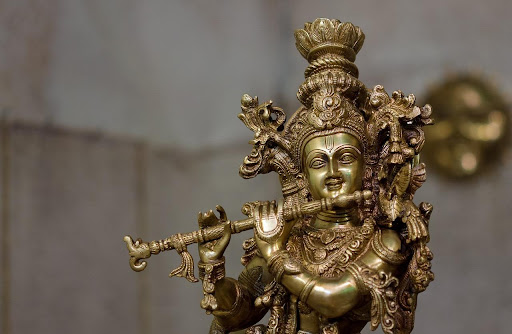Gambling, the act of risking money or valuables on an event with an uncertain outcome, has been a part of human culture for centuries. In the past, gambling was seen as a taboo subject, and many people would keep their gambling activities private for fear of being stigmatized
That said, in recent years, attitudes towards gambling have become more permissive, due in part to the growing number of land-based casinos and the rise of online gambling. As a result, more people are participating in gambling than ever before, leading to its increasing acceptance in society.
But the question remains: does gambling can lead to negative karma and spiritual harm? This is a topic that has been widely debated within various religious communities.
In this paper, we will explore different religious perspectives on the potential consequences of gambling and its impact on one’s spiritual well-being.
Christianity View on Gambling

Christians typically consider gambling to be a sin due to their beliefs about morality. Although Jesus Christ did not address gambling directly, his teachings on money and the plight of the poor suggest that it may be viewed unfavorably.
General Beliefs
Gambling is commonly perceived as a violation of the biblical commandment “thou shall not steal” because it can result in financial loss. Additionally, it is viewed as promoting greed and materialism, which are at odds with the teachings of Jesus Christ.
While the New Testament does not mention gambling specifically, it does condemn greed and the desire for wealth. The United Methodist Church also recognizes gambling as a negative influence on personal ethics and societal morals, as it encourages greed and harms the interests of good governance.
Some Denominations
Some religious groups of Christianity, however, may have different views on gambling. For example, some Christians believe that gambling can be enjoyed in moderation, just like any other leisure activity, and that as long as it does not become a destructive habit or lead to financial ruin, it can be considered as a form of entertainment.
Hinduism View on Gambling

The stance of Hinduism on gambling is open to interpretation and varies globally. Generally, the religion views gambling as a negative activity that can lead to negative karma and spiritual harm.
The Mahabharata, an epic poem, tells the story of King Yudhisthira who was tricked into betting his kingdom on a dice game and lost, resulting in his family’s exile. While this story serves as a warning about dealing with nefarious people, it does not necessarily condemn gambling.
However, the Manusmriti, an ancient Hindu text, lists gambling as the worst sin a person can commit. Overall, Hinduism’s attitude towards gambling can be considered as being somewhere in between strict opposition and acceptance.
Buddhism View on Gambling

In Buddhism, gambling is also seen as a form of theft and a waste of time and resources that could be used for more productive and meaningful pursuits. However, there are Siddhartha Gautama’s teachings to consider gambling differently.
General Beliefs
Siddhartha Gautama, the founder of Buddhism, created his teachings during a time when gambling was socially accepted in his kingdom. Buddhism, as opposed to other major religions, doesn’t entirely condemn gambling, it instead puts gambling into three classes:
- Recreational
- Habitual
- Addictive
Recreational gambling is acceptable, but Buddhism does condemn addictive gambling. The religion also differentiates itself from others by not allowing gambling to be used to raise funds for religious organizations.
Some Denominations
In some religious groups of Buddhism, as mentioned above, gambling is not seen as a negative activity, but rather as something that can be enjoyed in moderation. They believe that it’s not the activity that is negative, but rather the attachment and addiction to it.
Conclusion
In summary, different religious traditions have varying perspectives on gambling. While some view it as morally wrong and a form of greed, others see it as a harmless form of entertainment or even a way to test one’s luck and fortune.
Anyway, it is important for individuals to be aware of their own beliefs and values and to approach gambling with caution. Additionally, if an individual is experiencing negative consequences from gambling, it is important to seek help and support in order to address any addiction or financial problems that may have arisen.


 by
by 

